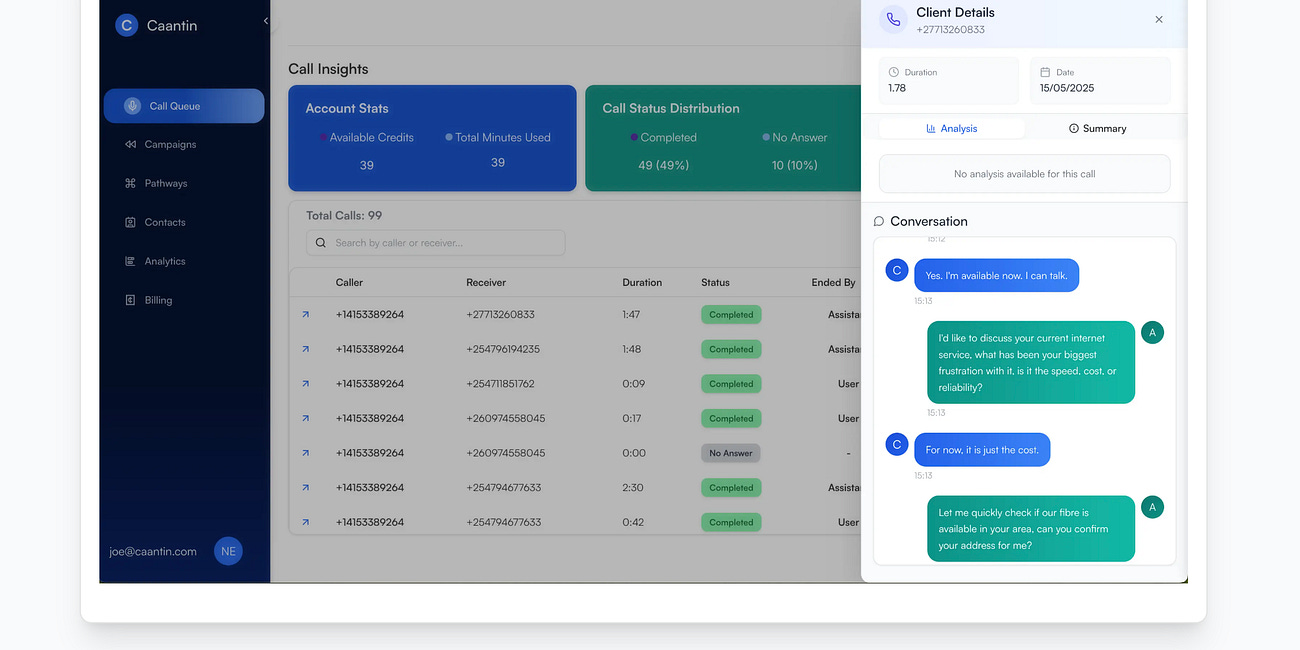Hi there,
Welcome to the 10th edition of Next Capital, where we help you find Africa’s most promising startups—before anyone else does.
Last week, we wrote about the startup attempting to build the world’s largest contact center, run entirely by AI. If you missed it, you can catch up here 👇🏾
Startup: Kita
Location: Ethiopia
Ask: $65,000 Pre-seed
Backstory
Here’s an interesting stat.
The average farmer in Ethiopia loses 90% of their produce value to middlemen.
Why? Bottlenecks like lack of storage, access to markets, and proper logistics.
So, the farmers stay on subsistence, middlemen feed fat off the gains, and food prices aren’t any good for regular folk.
Kita is an Ethiopian startup building a better alternative for these farmers with one goal: cut out the middleman.
The Problem
Most of the things that gouge the price of food have nothing to do with farming.
Instead, it’s things like:
Storage
Logistics
And finding the right markets for produce
If you’re an Ethiopian farmer, life comes with a harsh truth: 40% of fruits and vegetables you harvest will rot before anyone gets to eat them.
This makes your income worth nothing next to your efforts.
But even worse, it damages the environment (through food decay).
And what does the final consumer get for all this? High food prices.
That’s where Kita comes in—a startup building an AI-powered logistics and sales engine to help Ethiopia’s fresh produce supply chain grow.
Solution
Kita’s philosophy is simple: cut out the middleman, and good things will happen.
And that’s what their solution is built on.
Started by two brothers, Yohannes and Abel Alem, Kita set out to build three things as part of one solution:
A marketplace for farmers to connect directly with retailers and sell their produce
A fulfillment arm in the middle to help farmers store produce, reduce waste, and deliver produce
And an AI-powered platform that can help forecast demand for different produce, helping farmers plant more wisely
With this solution, post-harvest waste could drop from 40% to around 10%.
And farmer profits will go up, from 10% today, to 25%.
It’s still early days, but Kita has an MVP already, and they already did a pilot.
And it looks interesting…
The Opportunity
Ethiopia’s population is booming, and urbanization is surging. More people are moving into cities. More people are eating out.
The demand for consistent, high-quality produce is only growing. But there’s still no clear B2B infrastructure to support that demand.
Social-buying apps like ChipChip are exploring the B2C side, but the real margin opportunity—especially in logistics and pricing—sits on the B2B lane, and it’s wide open.
Government policy is aligned too.
There’s growing attention (and funding) going toward post-harvest loss reduction, food security, and agricultural modernization.
And beyond Ethiopia, the problem is continental. Many other major markets have inefficiencies similar to Ethiopia, from waste to logistics.
With its centralized model, Kita could build the perfect fulfillment engine for smallholder farmers not just in Ethiopia, but across Africa.
The Money Talk
So far, the following has happened at Kita:
It’s got signed LOIs from 10 vendors
It has a long waitlist of eager retail and wholesale customers
And its MVP is live, with the AI forecasting systems fully baked in
Now, Kita needs money to move faster.
They’re raising $65,000 in pre-seed funding to kickstart fulfillment operations, which are somewhat capital demanding.
When they get it, 65% of that will go into fueling their first major deliveries. The rest will cover ops and give them enough runway to prove themselves.
The goal is to hit $100,000 in monthly GMV, refine the model, and scale up to more farmers across Ethiopia.
But what Could Go Wrong?
Inertia is a powerful thing. What happens if farmers don’t trust Kita enough and stick to familiar agents instead?
There’s the meta question of “isn’t Kita itself being a middleman?” Maybe, but it’s an efficient and fairer one.
But if you ever need extra reasons to be excited, just look at…
The Team
Kita isn’t being built by outsiders flying in with theories. It’s led by Yohannes and Abel, two Ethiopians who grew up around this problem.
Yohannes is deeply plugged into the wholesale trade scene—he knows the brokers, the backdoors, and the inefficiencies from the inside.
Abel brings the technical muscle, having built full-stack systems before and now layering AI onto a very old-school industry.
Together, they’re building something rare in African agritech: a tech solution with both local context and real technical depth.
They’ve also developed patent-pending routing and optimisation technology that gives them a head start on more capital-intensive incumbents.
So, what do you think about Kita?
Let me know here. And if you’d like to meet the team directly, shoot us a mail.
We read every single one.
Till next week!🫡
Enjoyed reading this? Forward it to someone you think would enjoy it as well.






